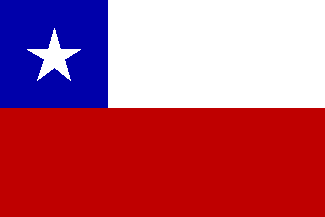



Although the "use of illegal pressure" is forbidden, there continued to be mistreatment and torture by some Investigations Police units. Searches of the home and interception of private communications are prohibited by the Constitution, unless either a civilian or military court issues a search warrant for specific locations. The 1984 antiterrorist law provides for surveillance of those suspected of terrorist crimes, and for the interception, opening, or recording of private communications and documents in such cases.
The Investigations Police made important arrests among the top leaders of these organizations in 1993, but terrorists continued to conduct violent, well-armed operations. On March 25, the Investigations Police captured Lautaro's number two leader, Delfin Diaz, who reportedly masterminded a 1992 attack on the police. On August 5, Investigations Police captured Mauricio Hernandez Norambuena, number two leader of the FPMR/D, who was accused of participating in the April 1991 murder of Senator Jaime Guzman and three attacks on American government representatives in Chile.
On 29 October 1995 the Investigations Police arrested Gladys Marin, Secretary General of the Communist Party, and jailed her on charges of having slandered army commander-in-chief Augusto Pinochet. The army brought charges against Marin under the National Security Law for public statements she made on September 11 characterizing Pinochet as a psychopath and accusing him and the army of human rights violations. The army subsequently dropped the charges, and Marin was released on 21 October 1995.
On 10 April 1995 Supreme Court Justice Alfredo Pfeiffer reopened the investigation of the April 1991 assassination of Democratic Independent Union (UDI) founder and Senator Jaime Guzman, due to controversial public statements made by Jorge Barraza, the police detective in charge of the 1991-93 investigation. Pfeiffer resigned in June 1995, claiming death threats and political pressure to drop the case, and Raquel Camposano was appointed in his place. On 18 December 1995, as a result of her investigation, Camposano issued an arrest warrant for Investigations Police director Nelson Mery, charging him with obstruction of justice for withholding from judicial authorities a key surveillance videotape of the terrorist cell involved in the Guzman assassination. Separately, the judge also issued indictments against former Deputy Director of Public Security Marcelo Schilling, his assistant, and several subordinates for having illegally obtained information from leftwing terrorists in exchange for immunity from prosecution.